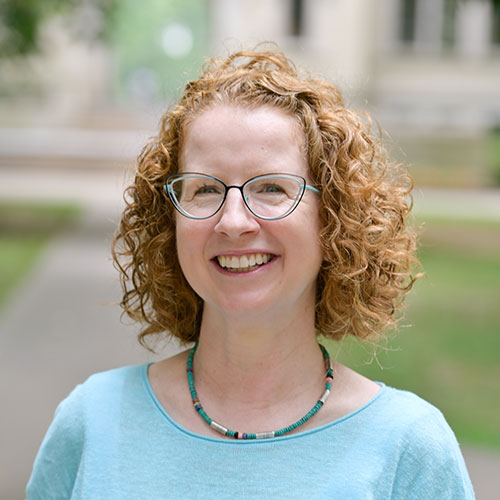
History professor presents research on motherhood and families in 19th century Brazil at international seminar

Katherine Holt, Aileen Dunham Professor of History and chair of Latin American Studies at The College of Wooster presented her research into motherhood and women’s experiences in Bahia, Brazil during the 19th century at an international symposium. Called “O escravismo de ponta-cabeça. Escravidão e abolição nas Américas” (Turning Enslavement on Its Head: Slavery and Abolition in the Americas), the symposium was held at the Pontifical Catholic University of Rio de Janeiro and drew historians from Brazil, Argentina, England, and the U.S. to present research that challenges previous ideas about resistance and agency in Atlantic World plantation societies.
Holt presented her research essay “Motherhood in Enslavement and Freedom in 1830s Santiago de Iguape, Bahia” drawing from her research in the State Archives in Salvador, Bahia, Brazil. She examined the prevalence of large families in the sugar plantation society of the Bahian Recôncavo and the ways women’s experiences as mothers vary by race, marital status, and free/enslaved status. Her revised essay, along with others from the seminar, will be published in Portuguese in 2025 by Editora Unicamp.
Looking at pregnancy and motherhood from an intersectional approach, Holt drew connections to the role race, class, and living conditions play in maternal and infant outcomes today. “I’m interested in this research on 19th century Bahia because it helps us understand the diversity of lived experiences in the past,” she said. “There is a lot of innovative scholarship in the U.S. and Brazil that looks of the complexities of enslaved motherhood, so it is exciting to contribute my research on the sugar plantations of Bahia to illuminate this larger question.”
Holt used the 1835 Santiago do Iguape Household Census to consider Bahian women’s experiences during pregnancy, their average age upon first giving birth, and their total number of surviving children. “These census records demonstrate how the physical and mental demands placed on enslaved women on Iguape’s sugar plantations contributed to lower reproductive rates and smaller families, vulnerable to dissolution through forced separation or death,” she said.
Further, Holt studied how mothers in the society prepared their children for roles within a hierarchical society. She found parents chose godparents as their child’s first link to the wider Catholic community. An examination of Iguape’s parish baptismal records showed how free and enslaved parents demonstrated agency in their selection of godparents as a strategy of improving their child’s connections within the community. “Taken together, this research gives new insights into the lived experiences of mothers and children in a hierarchical plantation society,” said Holt.
Highlighting the central role Africans and their descendants play in shaping Latin American and Caribbean history helps Holt’s students at Wooster to understand that research is global. “I am a social historian, so students in my Latin American history classes work with primary sources that emphasize the experiences of people like the enslaved mothers I study in this research project, said Holt.
Posted in Faculty, News on July 8, 2024.
Related Posts
Related Areas of Study
Latin American Studies
Study the history, cultures, and languages of Latin America in a minor that blends well with many disciplines
MinorHistory
Critically examine events and societies of the past and learn to tell the stories future generations need to know
Major Minor

